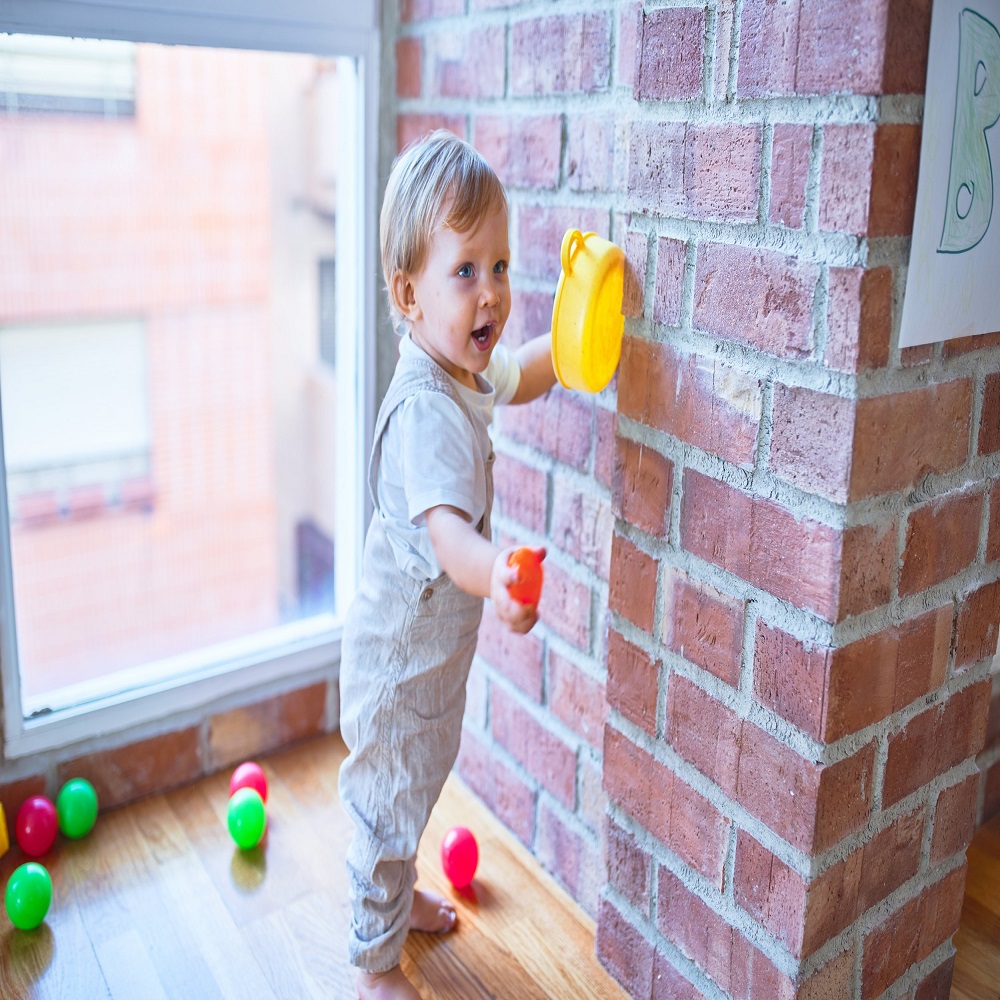As parents, we often seek ways to nurture our children’s development in various areas, and language acquisition is one of the most pivotal. Boosting your toddler’s speech is not solely about enhancing their vocabulary; it’s about encouraging effective communication skills that will serve them throughout their lives. This article will explore practical strategies to foster speech and language development in toddlers, ensuring they have a solid foundation for future learning.
Understanding the Stages of Speech Development
The Early Years of Language Acquisition
Before diving into strategies, it’s essential to understand the stages of speech development in toddlers. Typically, children begin to coo and babble in their first year, progressing to single words by around 12 months. By the time they reach 18 months, many toddlers can say several words, and by age two, they can usually combine words into two-word phrases. Recognizing these stages helps parents set realistic expectations. Each child is unique, and while some may hit these milestones early, others may take their time.
Factors Influencing Speech Development
Various factors can influence a toddler’s speech development, including genetics, exposure to language, and environmental influences. Children who grow up in language-rich environments, where they are frequently talked to and read to, tend to develop stronger language skills. Support from caregivers is also crucial during this stage, as children often imitate the speech patterns of the adults around them. By understanding these factors, parents can tailor their approach to suit their child’s needs better, ensuring a supportive environment conducive to effective language learning.

Creating a Language-Rich Environment
The Power of Conversation
Engaging in regular conversations with your toddler is one of the most effective strategies for boosting their speech. Children absorb language from their surroundings, and by consistently talking to them, you provide them with the vocabulary and sentence structures they need. Make it a point to narrate your daily activities, ask open-ended questions, and give them ample opportunities to express themselves. Even if their replies are simple or non-verbal, this interaction is vital for their learning process.
Reading as a Gateway to Language
Reading to your toddler is another powerful tool for language development. The rhythm, cadence, and varied vocabulary found in children’s literature can introduce new words and concepts. It encourages listening skills, comprehension, and encourages a love for storytelling. Aim for daily reading sessions, utilizing books that appeal to your child’s interests. Ask questions about the story, encourage them to describe pictures, or predict what might happen next. This interaction not only boosts vocabulary but also creates a meaningful bonding experience.
Utilizing Play to Enhance Speech
The Role of Interactive Play
Play is one of the most natural and effective ways for toddlers to learn. Interactive play, where parents and toddlers engage together, fosters communication skills. Whether through role-playing, building with blocks, or playing with dolls and action figures, these activities offer countless opportunities for dialogue. During play, encourage your child to explain their actions, describe their creations, or share their thoughts. This type of interaction strengthens their vocabulary and allows them to practice taking turns in conversation.
Encouraging Imaginative Play
Imaginative play also encourages toddlers to use their language skills creatively. Providing dress-up clothes or props can spark imaginative scenarios where toddlers mimic real-life situations. As they engage in this type of play, they narrate stories and dialogues, further developing their vocabulary and understanding of conversational structure. Ensure to engage in these activities with your child, prompting them with questions and suggestions to expand their language use during play.
Leveraging Technology Wisely
Educational Apps and Games
In today’s digital age, technology can play a role in fostering language development. There are countless apps and games specifically designed for toddlers that promote speech and language skills. These educational tools often include interactive elements that encourage verbal participation. However, it is crucial for parents to choose age-appropriate content and limit screen time to ensure a balanced approach. Always participate in these activities with your child to reinforce learning and maintain the quality of interaction.
Interactive Videos and Stories
Similarly, interactive videos and stories can promote speech development when used wisely. Platforms like YouTube offer channels dedicated to educational content for toddlers, often incorporating songs and interactive language games. However, moderation is important; excessive screen time can hinder real-life interactions and communication skills. As with apps and games, co-viewing these videos allows parents to discuss content, ask questions, and reinforce language skills. Strive for a healthy balance between digital learning and traditional face-to-face communication.

Encouraging Social Interaction
Playdates and Group Activities
Encouraging your toddler to spend time with peers can greatly enhance their speech skills. Playdates and group activities provide opportunities for children to interact, share, and learn from one another. During these interactions, toddlers are exposed to different speech patterns, vocabulary, and communication styles. Facilitate these opportunities regularly, and observe how your child experiences social language use. They may begin to replicate phrases they hear from their friends or become more comfortable initiating conversation.
Emphasizing Group Learning Activities
Participating in community activities such as storytime at local libraries or group classes can also foster speech development. These settings not only provide opportunities for social interaction but also expose children to new vocabulary and concepts. Group settings often incorporate songs, rhymes, and movement, further enhancing learning through play. Encourage your toddler’s speech to take part in these activities, as they also nurture a sense of community and belonging.
Being An Active Participant in Your Child’s Learning
Demonstrating Patience and Encouragement
When discussing language development, it’s vital for parents to be patient and encouraging. Children will often make mistakes as they learn to express themselves, and it’s essential to respond positively rather than correcting too harshly. Celebrate their attempts to communicate, even if what they say is not entirely clear. Positive reinforcement can build their confidence and motivate them to continue practicing their speech skills.
Creating a Supportive Atmosphere
Create an environment where your child feels safe to experiment with language. Encourage them to express themselves without fear of judgment. Offer gentle prompts if they struggle to find words, and avoid finishing their sentences for them. Allowing them the opportunity to articulate their thoughts will not only improve their language skills but also enhance their self-esteem and willingness to engage in conversations.
Identifying and Addressing Speech Delays
Recognizing Red Flags
While many children develop their speech skills at their own pace, it’s essential to be aware of potential speech delays. If your toddler’s speech is not using words by 15 months or has not started combining words by two years of age, it may be time to seek guidance. Other red flags include difficulty understanding simple instructions or a limited vocabulary for their age. Early intervention can significantly impact their speech development, so being proactive is crucial.
Seeking Professional Guidance
Should you suspect a delay, consulting a speech-language pathologist can provide valuable insights. These professionals can assess your child’s speech and offer tailored strategies to support their development. They may recommend specific exercises, therapy sessions, or resources to help your child enhance their communication skills. Remember, early intervention is crucial; addressing concerns early can lead to significant benefits in your child’s language acquisition.
Reinforcing Language Skills at Home
Incorporating Language Learning into Daily Routines
Reinforcing language skills at home can be seamlessly integrated into your family’s daily routines. Use mealtime to discuss the food being served, describe colors and textures, or share stories about family traditions. Bath time can become a fun opportunity for language learning with songs and games. Even chores can prompt questions and conversation, enriching the learning environment. These real-life contexts make learning language relevant and practical.
Establishing a Consistent Routine
Consistency is key when it comes to language development. Establish a daily routine that includes reading, playtime, and conversation. This predictable structure not only helps enhance learning but also provides a comforting environment for your toddler. With regular exposure to language-rich activities, your child will become more comfortable using language in various contexts, leading to greater proficiency over time.

Conclusion: The Path to Language Success
Emphasizing the Parent-Child Bond
Incorporating these strategies into your daily routine can substantially enhance your toddler’s speech development. Remember, the goal is not only to increase vocabulary but to foster a love for communication. The parent-child bond plays a crucial role in this journey; the more engaged you are, the more your child will thrive. Each interaction is an opportunity to nurture their skills and pique their curiosity about language. Celebrate every small triumph, and enjoy this precious time of discovery as your toddler learns to express themselves in exciting new ways.
Lifelong Benefits of Strong Communication Skills
Investing time and effort in boosting your toddler’s speech development pays off in numerous ways. Strong communication skills are vital not only for academic success but also for social and emotional development. When children feel confident in their ability to express themselves, they are more likely to form meaningful relationships and navigate social situations successfully. By implementing these strategies and being actively involved in your child’s language journey, you lay the groundwork for their bright and communicative future.
